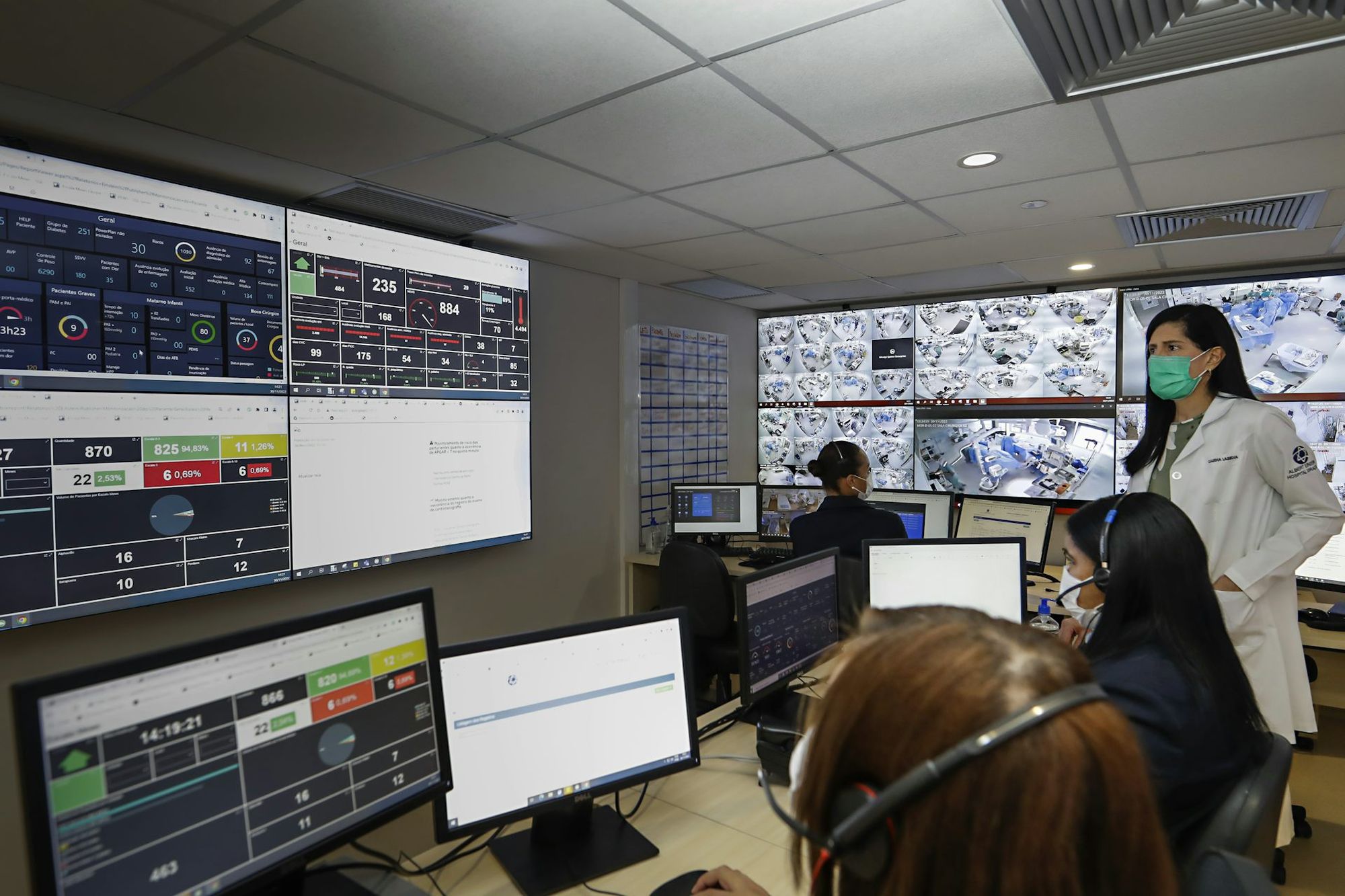Medicine and healthcare are already so immersed in new digital technologies that we need to consider what is happening now. Terms such as telemedicine, artificial intelligence (AI), and open health, which a few years ago might have seemed like something from science fiction, have become part of our daily lives.
The use of AI in health, specifically, is a vast field to be explored. It can improve everything from the time it takes to produce and deliver diagnoses to their accuracy, as the World Health Organization’s (WHO) first report on AI applications highlights.
A study carried out by the International Research Center (CIPE) with the AC Camargo Cancer Center in São Paulo clearly attests to the positive performance of AI in this area. The researchers used AI to identify statistical models capable of predicting HER2 subtype breast cancer in imaging scans of 311 women and the patients’ response to treatment. The results were highly diagnostic.
In addition, AI can also help make health resource allocations more efficient and support tasks such as preparing for public health crises (eg. pandemics). At the individual level, the use of this technology in wearables, such as smartwatches, can encourage patient adherence to treatments, help prevent illnesses and collect data more frequently.
A 2022 report by the consultancy Deloitte points to the trend for smartwatch manufacturers to make them capable of monitoring blood pressure more efficiently. Periodic tests can miss signs of chronic hypertension – which requires more frequent and accurate measurements. The market for these devices, says the consultancy, is huge: around 1.3 billion adults worldwide suffer from hypertension.
Considering generative AI, ChatGPT has already become a household name. And, according to a report in the MIT Technology Review, generative AI could have a prominent use not only in the development of medicines, but could also be a “powerful assistant for front-line staff”.
Because of its ability to relay non-technical language, and transcribe and summarize medical notes, researchers believe that AI chatbots will be able to answer medical questions and offer more fluent contact to consumers and patients.
Infrastructure and regulation
Parliaments around the world are discussing legislation for Artificial Intelligence. The 2023 AI Index Report, a survey by Stanford University in the United States showed that mentions of AI increased 6.5 times in the legislative processes of 81 countries.
In general, in order for advances in the application of digital technologies, and AI in particular, to become effective tools in the provision of services, there are many discussions to be deepened in the coming year. These range from the infrastructure necessary to its legal regulation.
Like many countries, Brazil has made changes and introduced innovations to existing legislation. A 2020 law authorized the use of telemedicine during the pandemic. The authorization came as an emergency measure to deal with the COVID-19 global health crisis which, by the end of 2023, had recorded more than 770 million cases.
With this model, health financing in the public sector gained in efficiency, expanding medical care via telemedicine (70% of patients who use telemedicine repeat the experience within 60 days) – even for the private sector it would offer cost savings.
The same legislation was adapted in 2022 to cover telehealth. The original law applied only to doctors – to deal with the need to maintain social distancing, consultations had to be virtualized. The expanded 2022 version extended the right to use remote service provision through information and communication technologies to all health professions.
Previously the Digital Medical Record Law was passed, regulating the digitization and use of computerized systems for the safekeeping, storage and handling of patient medical records, enabling healthcare entities to replace physical medical records with electronic ones, guaranteeing the inviolability of records and the confidentiality of information.
Now, with the expansion of AI and the arrival of open health – the concept of digital integration of all the relevant ends of a healthcare ecosystem – the need to revise existing laws is emphasized. After all, this is an approach capable of making a patient’s history, medical records, prescriptions, tests and any other relevant medical information available to doctors and health professionals in an organized and accessible way in a single system.
These are examples of adjustments that seek to adapt digital innovations already incorporated into the routine, from financial services to legal proceedings, in the healthcare sector.
Expanding the Internet
We still have the task ahead of us of promoting the expansion of Internet access so that more people can benefit from digital resources in health and other areas.
The ICT Households 2023 survey, drawn up by the Regional Center for Studies for the Development of the Information Society (Cetic, linked to the Brazilian Internet Steering Committee – CGI.br), shows that 84% of Brazilian households have access to the Internet. This means that the other 16% are offline in the midst of the digital revolution. This group represents around 34 million people.
In order to improve Internet access in the country, from August 2023, access providers will receive resources from the Telecommunications Services Universalization Fund (FUST) through the National Bank for Economic and Social Development (BNDES).
AI regulation on the agenda
The advance of technology has unfortunately not only brought beneficial uses for society. It has also brought an increase in cybercrime in Brazil and around the world. The Brazilian law that defines the rights and duties of Internet users and providers, the Marco Civil da Internet, was approved in 2014 and needs a major overhaul in the face of advances in digital technologies.
With generative AI, Brazil began to move towards regulation with the General Data Protection Law (LGPD), which came into force in 2020 and has been making progress.
In 2023, this law gained additional topics, such as the publication of the Regulation on the Measurement and Application of Administrative Penalties. The first fine set by the National Personal Data Protection Authority (ANPD) was issued in July 2023 and had the weight of a warning.
On the agenda for 2024 is a Senate debate which aims to regulate the use of AI in the country. With regard to health, for example, the current wording of the bill has been widely criticized for containing risk classifications that could prevent the use of AI in the sector from advancing.
More broadly, ethical discussions will also have to be faced in 2024: human rights, bias, copyright, labor rights and even job cuts and sensitive data. All this is (but not only) material for intense discussions.
Responsibility, transparency and trust are the three pillars that underpin the adoption of digital tools. Exclude one and the whole collapses. In healthcare, this is even more true.
Finding the balance between costs, advances and regulation of AI in healthcare will be an ongoing task. The year 2024 will be the ideal time to open up and deepen these discussions.
Claudio Lottenberg is PhD in Ophthalmology, Professor and Chairman of the Board of the Albert Einstein Brazilian Israelite Beneficent Society, Albert Einstein Israelite College of Health Sciences
This article was originally published in The Conversation. Read the original article here: https://theconversation.com/ai-in-healthcare-presents-big-opportunities-for-brazil-but-further-public-debate-and-legislation-are-needed-now-221480






